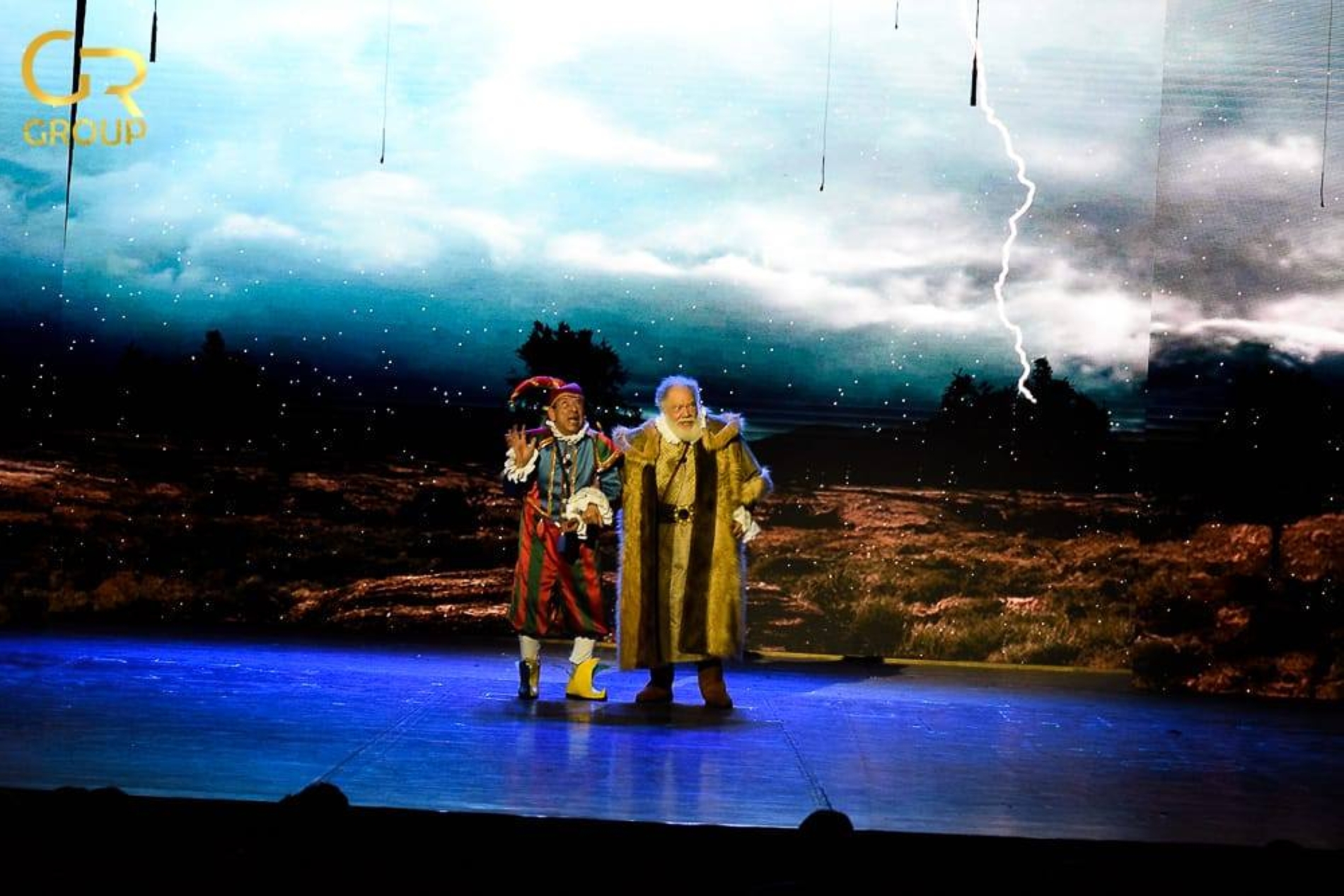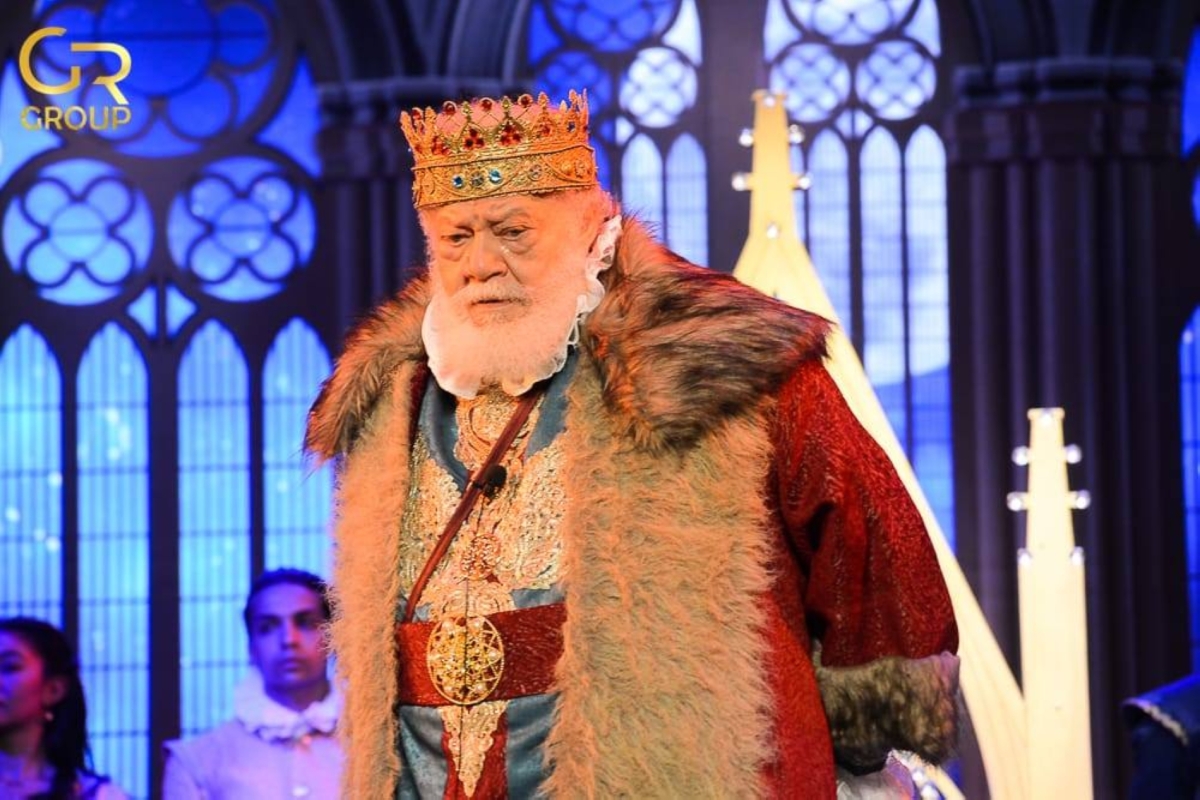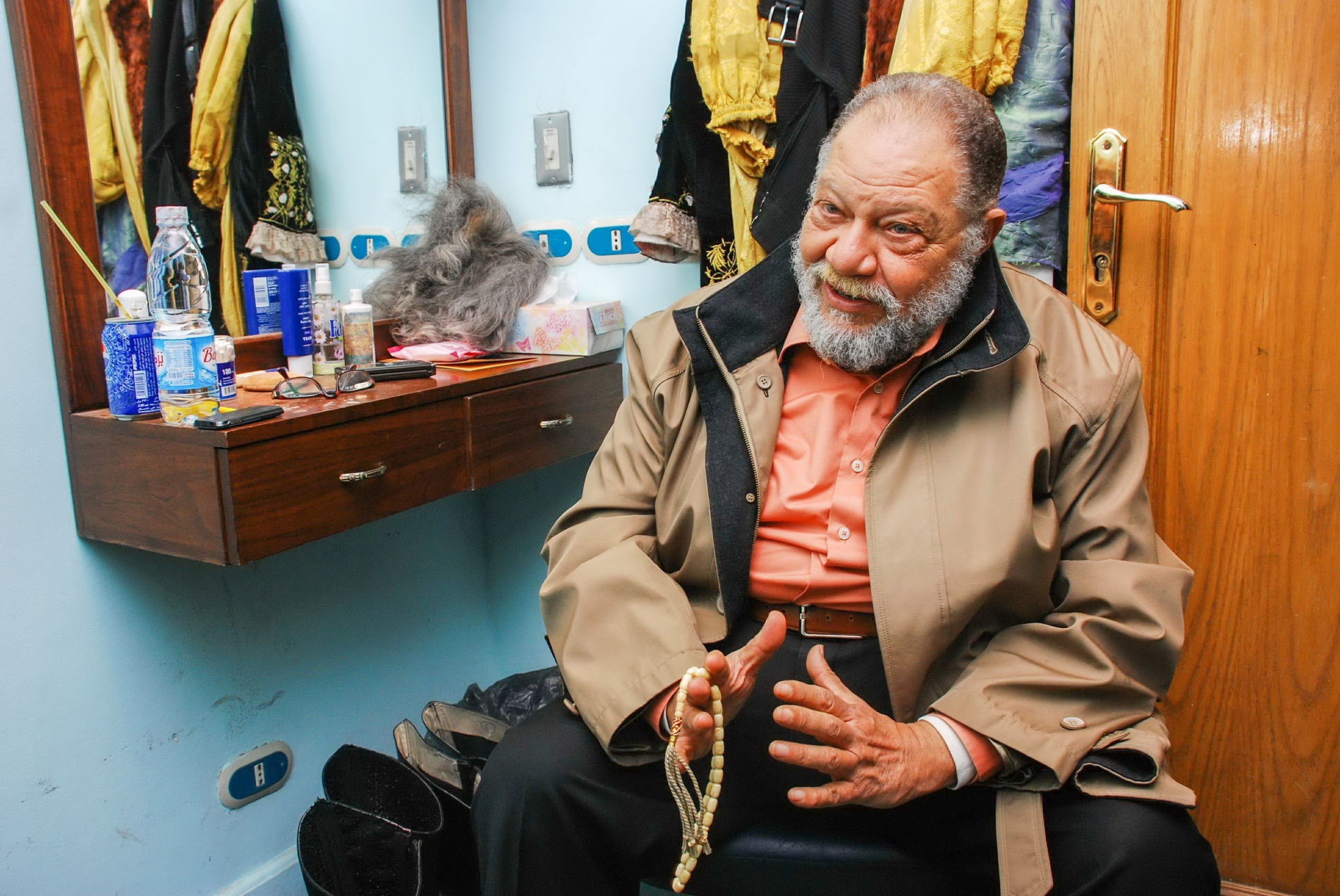Three years ago, during a symposium titled The Director and the Theatrical Text at Egypt’s National Theatre Festival, director Shadi Sorour spoke candidly when he said he favoured contemporary Egyptian and Arabic texts, especially by living writers with whom he could engage and collaborate.
His experience with Alfred Farag’s On the Wings of Tabrizi exemplified this ethos when he sought to rework the play’s ending together with the author, a spirit that later animated works like The Kids Got It, staged last year. Yet for now, at least, Sorour appears to have suspended those principles, because for his latest production he reaches back 400 years to the unrivalled king of English drama: William Shakespeare.
King Lear, a cornerstone of the Shakespearean canon, is currently revived and running at Cairo’s National Theatre, starring Egyptian actor Yehia El-Fakharani, 80, who is playing Lear for the third time. When El-Fakharani steps on stage, categories collapse. The classical becomes immediate; the canonical, newly urgent.
Portraying Lear for the first time, El-Fakharani recalls the role being far more taxing, his younger self having to stretch physically and emotionally to inhabit the soul of an ageing, broken monarch. Now, however, he no longer needs to feign frailty. “I’m finally the right age for the character,” he says, cane in hand.

Cairo does Lear
The play, a five-act tragedy, was first staged at Cairo’s National Theatre in 2001 under the direction of Ahmed Abdel Halim, with Ashraf Abdel Ghafoor playing the lead role. It ran for nearly nine years, one of the longest in Egyptian theatre history. A 2019 revival, directed by Tamer Karam, featured Farouk El-Fishawy as Lear, later succeeded by Ahmed Fouad Selim after El-Fishawy’s passing.
Rarely does Egypt’s private theatre sector venture into such high-stakes classical territory, but El-Fakharani’s presence tends to bend the rules, such as with the 2014 Ramadan TV drama Dahsha, a rural Egyptian adaptation of King Lear, written by Abdel Rahim Kamal and directed by his son, Shadi El-Fakharani.
In Cairo’s sweltering July heat, King Lear has become the city’s most sought-after cultural experience. Since it opened last month, the venerable theatre has been buzzing with a rare sense of anticipation. El-Fakharani’s aura remains undiminished, his performance magnetic. Time may have passed, but the spark endures.
Every performance is a sell-out. Most tickets sell within minutes. The theatre’s new online booking platform collapsed under the demand. Accessible only via certain smartphones, it triggered digital chaos. Algorithms and profiteers have sadly left many traditional theatregoers behind.
A classical production, delivered entirely in Modern Standard Arabic, King Lear has become a shared ritual—a rare, collective moment of admiration in an age of cultural fragmentation and division. When the Arab League Educational, Cultural and Scientific Organisation (ALECSO) named Yehia El-Fakharani the ‘Symbol of Arab Culture’ earlier this year, it felt less like an honour than a coronation.












